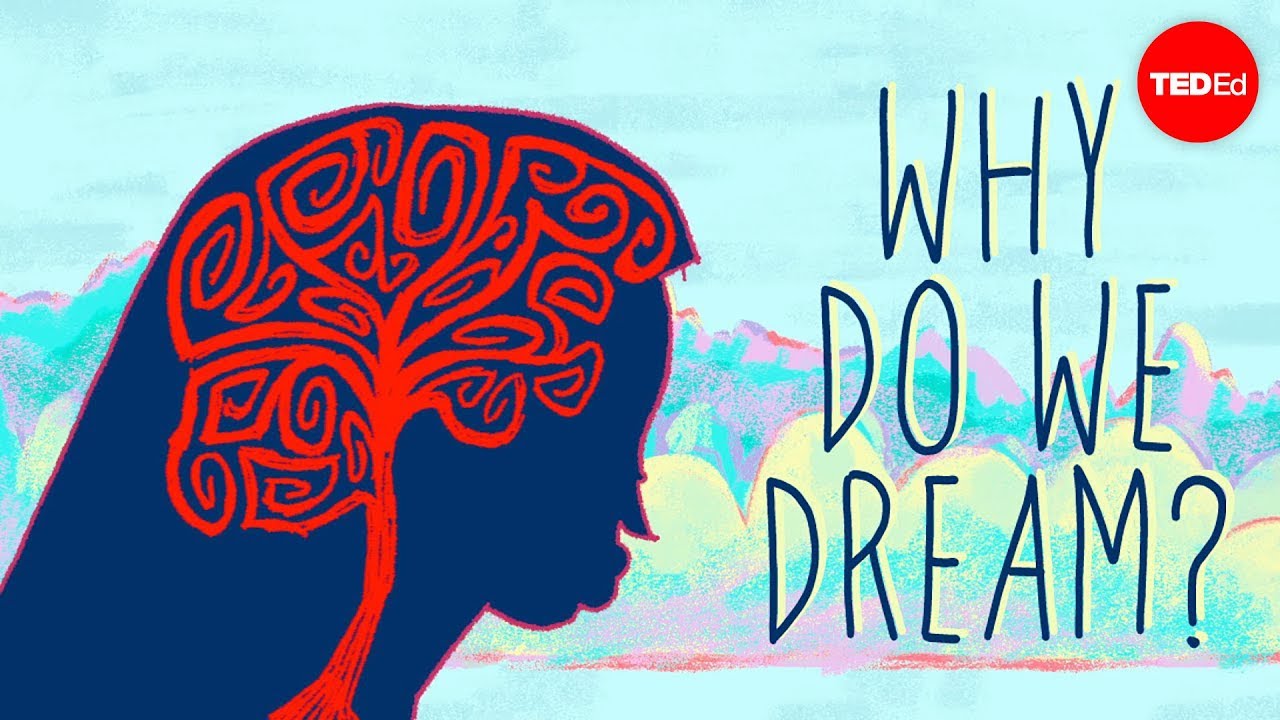Why Do We Dream? Exploring The Science Behind Our Subconscious Mind
Why do we dream? This is a question that has fascinated humans for centuries. Dreams are a natural part of our sleep cycle and can be vivid, bizarre, and sometimes even frightening.
Author:Suleman ShahReviewer:Han JuApr 07, 202322 Shares708 Views

Why do we dream? This is a question that has fascinated humans for centuries. Dreams are a natural part of our sleep cycle and can be vivid, bizarre, and sometimes even frightening.
While scientists and psychologists have studied dreams extensively, the exact purpose and function of dreams are still not fully understood.
In this article, we will explore some of the current theories about why we dream and what they could mean for our understanding of the human mind.
Theories On Why We Dream
Dreams have puzzled and fascinated humans for centuries, and various theories have been proposed to explain their purpose and meaning. From serving as a form of memory consolidation to aiding in emotional regulation, the reasons why we dream are still being explored and debated by scientists and psychologists today.
Freud's Theory
Sigmund Freud, the father of psychoanalysis, believed that dreams were a manifestationof unconscious desires and wishes. According to Freud, dreams allowed individuals to fulfill their repressed desires and fantasies that were unacceptable in waking life.
Freud's theory suggested that dreams were a way of expressing repressed emotions, desires, and conflicts.
The Activation-Synthesis Model
The activation-synthesis model is a modern theory that suggests that dreams are a byproduct of the brain's activity during sleep.
The theory suggests that the brain's neurons fire randomly during sleep, and the brain then tries to make sense of these signals by creating a story, leading to dreams.
The Information-Processing Theory
The information-processing theory suggests that dreams are a way of processing information from the day.
The theory suggests that dreams help individuals consolidate and organize their memories and experiences, allowing for better learning and problem-solving.
The Threat Simulation Theory
The threat simulation theory suggests that dreams are a way for individuals to prepare for potential threats and dangers in the waking world.
According to this theory, dreams allow individuals to practice their response to potential threats, helping them be better prepared for similar situations in real life.

Why do we dream? - Amy Adkins
The Purpose Of Dreams
Emotional Regulation
One theory suggests that dreams are a way for individuals to regulate their emotions. Dreams allow individuals to process emotions and experiences from the day, which helps reduce the intensity of negative emotions and promote positive emotions.
Problem-Solving
Dreams may also serve a problem-solving purpose. Dreams allow individuals to explore different solutions to problems and situations in a safe and creative environment, leading to innovative problem-solving.
Creativity
Dreams have been linked to creativity and innovation. Dreams may provide individuals with novel and imaginative ideas that they may not have thought of in their waking life.
Why Do We Dream About Certain Things?
There are several theories about why we dream about certain things. One theory is the "threat simulation" theory, which suggests that dreams allow us to simulate dangerous or stressful scenarios and practice how we might respond in those situations.
This theory suggests that dreaming is an evolutionary adaptation that helps us prepare for potential threats in the future.
Another theory is the "memory consolidation" theory, which suggests that dreaming helps us consolidate and integrate new information and memories.
During sleep, the brain processes and consolidates memories from the previous day, and dreams may be a byproduct of this process.
Some researchers also suggest that dreaming is a way for the brain to work through unresolved emotions or psychological conflicts. Dreams may provide a safe space to explore and process difficult feelings or experiences.
Additionally, some psychologists suggest that dreaming is simply a way for the brain to entertain itself during periods of rest and relaxation. Dreams may be a result of the brain's natural tendency to create stories and narratives.
Overall, the question of why we dream about certain things is still a subject of ongoing research and debate. While we may never fully understand the purpose of our dreams, they remain a fascinating and mysterious aspect of the human experience.
Why Do We Dream At Night?
Dreams have fascinated people for centuries, and scientists and researchers have long been trying to understand why we dream at night.
Dreams are a natural part of the sleep cycle and occur during the rapid eye movement (REM) stage of sleep.
While it is not entirely clear why we dream, there are several theories about the purpose of dreams and why we experience them during sleep.
One theory suggests that dreaming is a way for the brain to process and consolidate memories.
During sleep, the brain can review and organize information gathered throughout the day, helping us to retain important information and discard the rest.
Dreams may also serve as a form of problem-solving, allowing the brain to work through complex issues and come up with creative solutions.
Another theory is that dreaming serves as a way for the brain to practice and prepare for real-life scenarios.
By simulating experiences during sleep, the brain can improve its ability to respond and adapt to similar situations in waking life.
Finally, some researchers believe that dreaming may have evolutionary significance, helping humans to process and cope with emotions and experiences in a safe and controlled environment.
While the exact reason why we dream at night remains a mystery, research continues to shed light on the possible functions and significance of dreaming in our lives.
Why Do We Dream So Vividly?
There is still much to be learned about why some dreams are more vivid than others, but there are several factors that may contribute to the intensity of dream experiences.
One possibility is that the brain is more active during periods of deep sleep, which may lead to more vivid dreams. Additionally, some medications, substances, and sleep disorderscan increase the vividness of dreams.
Another theory suggests that emotional or stressful events may trigger more intense dreaming. The brain may process and consolidate these events during sleep, leading to more vivid and memorable dreams.
It is also possible that individual differences in brain chemistry or structure may play a role in the intensity of dreams. Some people may simply be more prone to having vivid dreams due to their unique brain functioning.
Overall, the reasons behind why we dream so vividly remain a mystery, but ongoing research may provide more insight into this fascinating phenomenon.
People Also Ask
What Is The Purpose Of Dreaming?
The purpose of dreaming is still a topic of debate among scientists and psychologists. Some theories suggest that dreaming serves as a way for the brain to process and consolidate memories, while others propose that it may help us solve problems and cope with emotions. More research is needed to fully understand the purpose of dreaming.
Why Do We Dream More During Certain Stages Of Sleep?
We tend to have more vivid and memorable dreams during the REM (rapid eye movement) stage of sleep. This is because during REM sleep, the brain is highly active and the body is paralyzed, allowing the brain to create vivid, immersive dream experiences.
Can Dreams Predict The Future?
There is no scientific evidence to support the idea that dreams can predict the future. While some people may have experienced dreams that seemed to come true, these instances are often attributed to coincidence or subconscious processing of information that was already known but not consciously acknowledged.
Can Dreaming Help With Problem-solving?
Some research suggests that dreaming can help with problem-solving by allowing the brain to explore different scenarios and solutions in a safe, simulated environment. However, more research is needed to fully understand how dreaming may impact problem-solving abilities.
Do Animals Dream?
Yes, many animals experience REM sleep, which is associated with dreaming in humans. Studies have shown that animals such as rats, cats, dogs, and even certain types of birds exhibit behaviors during sleep that suggest they may be dreaming. However, the content and purpose of animal dreams are not fully understood.
Final Thoughts
Dreams remain a fascinating subject for scientists, psychologists, and ordinary people alike. While we may never fully understand why we dream, there are various theories that can help shed light on this mysterious phenomenon.
Dreams may serve various functions, including consolidating memories, processing emotions, and problem-solving. Additionally, dreams can reveal our subconscious desires, fears, and hopes, providing us with a unique opportunity for self-reflection and personal growth.
Regardless of their purpose, dreams remain a natural and necessary aspect of our daily lives. By paying attention to our dreams and exploring their meanings, we can gain valuable insights into our inner selves and the world around us.
So the next time you find yourself wondering, "why do we dream?" remember that the answer may be more complex and profound than you ever imagined.

Suleman Shah
Author
Suleman Shah is a researcher and freelance writer. As a researcher, he has worked with MNS University of Agriculture, Multan (Pakistan) and Texas A & M University (USA). He regularly writes science articles and blogs for science news website immersse.com and open access publishers OA Publishing London and Scientific Times. He loves to keep himself updated on scientific developments and convert these developments into everyday language to update the readers about the developments in the scientific era. His primary research focus is Plant sciences, and he contributed to this field by publishing his research in scientific journals and presenting his work at many Conferences.
Shah graduated from the University of Agriculture Faisalabad (Pakistan) and started his professional carrier with Jaffer Agro Services and later with the Agriculture Department of the Government of Pakistan. His research interest compelled and attracted him to proceed with his carrier in Plant sciences research. So, he started his Ph.D. in Soil Science at MNS University of Agriculture Multan (Pakistan). Later, he started working as a visiting scholar with Texas A&M University (USA).
Shah’s experience with big Open Excess publishers like Springers, Frontiers, MDPI, etc., testified to his belief in Open Access as a barrier-removing mechanism between researchers and the readers of their research. Shah believes that Open Access is revolutionizing the publication process and benefitting research in all fields.

Han Ju
Reviewer
Hello! I'm Han Ju, the heart behind World Wide Journals. My life is a unique tapestry woven from the threads of news, spirituality, and science, enriched by melodies from my guitar. Raised amidst tales of the ancient and the arcane, I developed a keen eye for the stories that truly matter. Through my work, I seek to bridge the seen with the unseen, marrying the rigor of science with the depth of spirituality.
Each article at World Wide Journals is a piece of this ongoing quest, blending analysis with personal reflection. Whether exploring quantum frontiers or strumming chords under the stars, my aim is to inspire and provoke thought, inviting you into a world where every discovery is a note in the grand symphony of existence.
Welcome aboard this journey of insight and exploration, where curiosity leads and music guides.
Latest Articles
Popular Articles